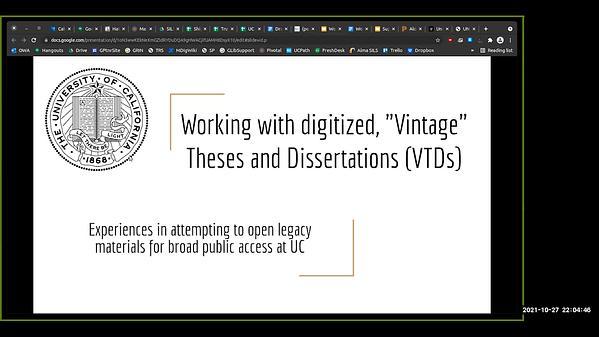invited talk
Developing and Testing a Schema for Collecting Information on Gender, Ethnicity, and Race in Scholarly Publishing , Holly Falk-Krzesinksi
Importance Diversity and inclusion in research are critical to enabling all individuals in the research workforce to advance and excel in their career, for rigor and quality in science, and to maximize equitable and impactful research outcomes for society. Scientific publishers, as stewards of trusted research, are positioned to drive change toward greater diversity and inclusion in publishing that in turn can serve as a catalyst for greater equity in the broader research ecosystem. Importantly, publishers can prioritize an evidence-based approach to diversity and inclusion, wherein data about editors, reviewers, and authors is a necessary first step to developing actionable plans.
Observations A diversity data collection in scholarly publishing working group was established as part of the multipublisher Joint Commitment for Action on Inclusion and Diversity in Publishing, a collective of 53 publishers convened by the Royal Society of Chemistry. The Joint Commitment collective’s ambition was to develop gender identity, race, and ethnicity schemas composed of questions and options that would resonate with researchers around the globe and engender their willingness to self-report when presented with the diversity questions within editorial management systems. Development of the schemas involved an iterative process drawing on published literature, input from working group members, an external subject matter expert, and feedback from a large-scale, global researcher survey. While the development of a global gender identity schema was not onerous, global schemas for ethnicity and race were challenging due to the sensitive personal nature of the data and because considerations of ethnicity and race tend to be localized, anchored in national census bureau schemas. After 18 months, the Joint Commitment collective endorsed all 3 diversity data schemas, sharing the information publicly so that any publisher can use the schemas to implement an aligned set of diversity questions in service of the shared pool of global researchers with the potential to facilitate benchmarking. The group also put forward a publisher/platform-agnostic architecture for collecting diversity data that safeguards the privacy and security of individuals’ data and offers access controls to prevent the data from being visible, accessible, or used at any stage of the individual manuscript peer review process. The first publishers began implementing the endorsed gender identity, ethnicity, and race questions across at least 2 different editorial management platforms in summer 2022.
Conclusions By inviting editors, reviewers, and authors to self-report diversity data in editorial management systems, publishers are pursuing a data-informed approach to set goals, develop and implement action plans, and measure progress toward advancing diversity and inclusion across journal editorial processes.
Conflict of Interest Disclosures Holly J. Falk-Krzesinski participated in the initiative in the normal course of her responsibilities as an Elsevier employee. No other disclosures were reported.
Additional Information This work is the result of an extended multipublisher, collaborative effort that included representatives from numerous signatories of the Joint Commitment for Action on Inclusion and Diversity in Publishing, a collective convened by the Royal Society of Chemistry. Elsevier is a signatory of the Joint Commitment; there is no financial component to being a signatory. An external subject matter expert was hired by Elsevier to provide consultancy to the initiative and provided the financial resources for all consulting fees. All materials provided to Elsevier by the consultant were shared with other Joint Commitment signatories.


